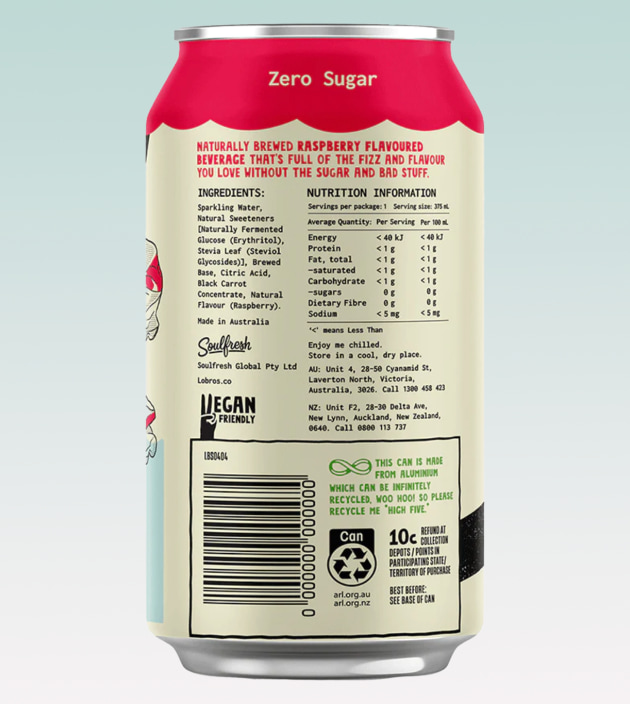Drinks industry challenger Lo Bros has launched a new impact-led range, Not Soda, and teamed up with independent retailers Ritchies and Drakes, with a goal to clean up two million plastic bottles from our oceans by 2025.

aluminium is infinitely recyclable.
Lo Bros says it is spearheading a new wave of planet-consciousness that consumers can get behind with the sale of its Not Soda drinks, which are available in 130 of the two retailers’ stores across the country.
For every can of Not Soda sold, Lo Bros says it will fund the removal of the equivalent weight of two plastic soft drink bottles from marine environments through its partnership with Seven Clean Seas. The message is featured on each 375ml Not Soda can.
Australian entrepreneur, change maker and Lo Bros founder, Didi Lo says he is on a mission to disrupt the drinks industry with this bold initiative.
He says, “We are very proud to announce the launch of Lo Bros Not Soda. Lo Bros Not Soda is not soda like you know it. It tastes like the best sodas you’ve tasted, while being Zero Sugar. But most importantly of all, every can of Not Soda directly addresses the environmental crisis being created by the soda industry.”
According to Lo Bros, up to 34 billion plastic bottles enter the ocean each year. In Australia, 75 per cent of all beverage aluminium cans are collected for recycling, it says.
Aluminium is infinitely recyclable, and this message is conveyed on the back of the Not Soda cans.
Michael Connolly, Drakes GM Merchandise and Marketing, said, “As leaders in the retail industry, we have a responsibility to be a part of the change for good, and this is a soda our consumers can feel good about. It’s not only zero sugar, but it contributes to saving our seas at a time when climate change is a global emergency.”
Fred Harrison, CEO at Richies, said “Connection to our community has always been front and centre for us. We know this mission is something our customers will be excited to get behind, as are we.”
“Partnering with Lo Bros Not Soda will generate tons of positive environmental and social impact whilst giving the existing soda market the disruptive shove it needs in the right direction. Not only is the product designed for recyclability and true circularity given today's infrastructure, but some of its profit is allocated to cleaning plastic pollution from our oceans," said Seven Clean Seas co-founder, Tom Peacock-Nazil.
The Power And The Passion Report, which surveyed 2018 Australians aged 16-75 years over the period 28 September to 7 October 2020, revealed that the hot button topics of most concern to Australian consumers are our oceans, climate change, and plastic waste. And, according to the report, the onus is on businesses to tackle these issues. In the lead up to the season of excess, Australians can take meaningful action by purchasing products that make them feel good, it says.
The Report was created by sustainability, behaviour change and brand purpose specialist Republic of Everyone and communications agency The Bravery, and researched by Independent market researchers Mobium Group.
Lo Bros Not Soda is available in Raspberry, Lemon, Orange, and Pink Grapefruit flavours, contain zero sugar and are naturally sweetened. They can be purchased from Ritchies, Drakes and independent supermarkets across Australia.






